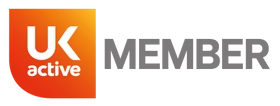A personal trainer bio is important for many reasons. You may need to do this as part of:
- a resumé or a CV
- a social media profile
- a website
- as part of an article
- when writing for a blog or a magazine
You may also want to use it to produce an information sheet about yourself to help promote your services. This could be something you give out to potential clients, or it could be something on display within a gym. It is therefore very important that you get the correct information in this bio so that someone can make an informed decision as to whether they would like you to train them.
What to Include - Qualifications
First of all, the most obvious thing to put into your bio is the qualifications that you have. It is very important that you put your qualifications and showcase what you’ve got, and it is important to make this relevant. For example, you wouldn’t necessarily put in your GCSE results, but you would put in things such as a degree in Sports Science, a BTEC in Sports Studies and certainly and absolutely your personal trainer qualification. It is important that you put the full details about this and don’t just write “qualified personal trainer”. Always be specific and indicate the full title of your credentials by putting that you have a Level 3 Diploma in Personal Training.
If you're registered with an official body such as CIMSPA, be sure to mention this in your bio to boost your professional credibility.
What to Include – Additional Credentials
Any additional fitness qualifications are also going to be useful as well. If you have qualifications such as circuit training, a Pre- and Postnatal qualification, or a GP Referral qualification, it would be beneficial to list this on your personal trainer bio. But be careful not to list too much and remember to keep it relevant. For example, if you had a separate qualification in Construction it would not be relevant to put this in a personal trainer bio. Always make sure that any qualification you list is specific to being a personal trainer. Even if you have dozens of credentials, it still may not be advantageous to list them all. It is better to focus on the important ones. Don’t get me wrong, if a resumé or CV is being written, you may wish to list things more comprehensively, but if it is just a quick bio about oneself then you just want to mention the key qualifications that a PT has, and not begin listing dozens of workshops, seminars and CPDs that have been obtained. The key thing is to keep it simple, concise and to the point so that people reading it can immediately see what qualifications you have got.
What to Include – Professional Memberships
It is useful to include professional memberships and the obvious one for a personal trainer is CIMPSA. If you are a CIMPSA member, and we always recommend that a personal trainer should be, then indicate that in there, putting that you are a CIMPSA personal trainer practitioner. Obviously make sure and be prepared to back that statement up, as people can look you up on the CIMPSA directory. If you are a CIMPSA member, shout about it and put it on your bio so that people can see.
What to Include – Experience
Experience is another thing that you may wish to put on there and again this is very much to the same points that I mentioned about qualifications – keep this relevant. For example, if you have worked in a gym then that would be fine and fantastic to put in your bio. If, however, you have worked in a shop then that might be a less relevant detail to put into a personal trainer bio. Always keep your bio relevant with the relevant experience as to what you have actually done. Anything appropriate to personal training could be included, such as being involved in sport, or health, or different areas linked to wellbeing, could all be deemed relevant and useful to include. If you have many years of experience as a personal trainer, then by all means put that. For example, if you have ten years of experience working as a personal trainer it may be worth listing just that and saying that you have a decade’s worth of experience as a PT. But again, always remember to try and not put too much there. For example, if you have worked in a dozen different gyms, there would be no need for you to list them all on a bio. You may choose to list them all if you are writing a resumé or CV, but for a bio it needs to be short, sharp, concise and to the point, and therefore you would only list the headlines that you want people to see. This could perhaps be the fact that you have worked for a particular prestigious gym or sports organisation, and you want to evidence that in the bio so that people see it.
Being listed on reputable directories like the NRPT can also help reinforce your credibility and attract potential clients.
What to Include - Specialisms
Another area you may wish to consider is detailing any specialist experience. For example, have you got specialisms in working with clients with medical conditions, or pregnant clients, or are you specifically working with sports clients, or do you specifically work with the older adult population? There are lots of different groups that if you have skill, expertise, and experience in that area then it would be a good idea to put that into your bio. Of course, if you are more of a generic personal trainer, there may be no need to get so specific, but if you are angling for a particular clientele then it is worth making a note of that in your bio and expressing that you have experience with that particular population.
Keeping It Professional
A bio should be kept relatively professional, and I wouldn’t suggest putting too much personal detail into it other than obviously your name. You could use some headline words such as saying that you’re enthusiastic, empathetic, experienced, and skilled. Using key words to describe yourself as a personal trainer can be useful but again keep it short, sharp, and concise. Overall, a bio is a way of immediately selling yourself to a client, and so you want to be concise, with short, sharp information that gets straight to the point, detailing the credentials about yourself that a potential client will be wanting to know.
In Conclusion - How to write a Personal Training Bio
This blog has looked at some key things to include when writing a personal trainer bio, including qualifications, professional membership, experience, skills, specialisms, and any other relevant information which promotes you as a personal trainer. I hope this has been useful in helping you to write a personal trainer bio for yourself, and I hope this has been useful for your development as a personal trainer.
To find out how to become a personal trainer see our course pages







